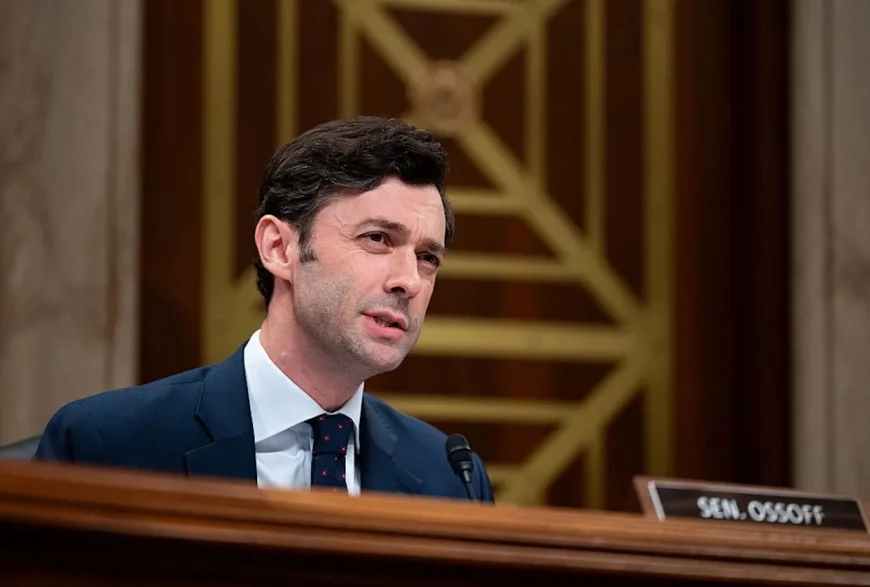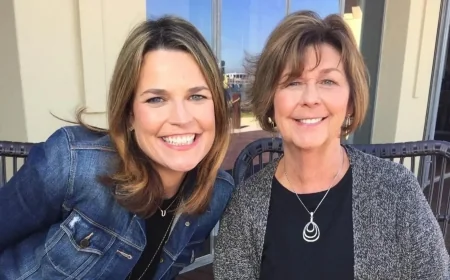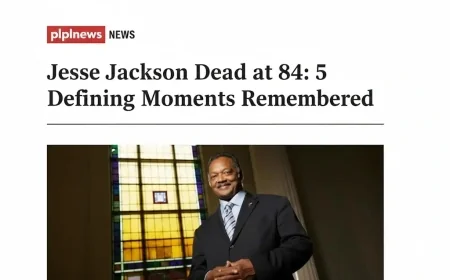Jon Ossoff stands firm on affordability in the face of GOP attacks
In the days leading up to the Nov. 8 agreement eight moderate Senate Democrats made with Republicans to end the government shutdown after 40 days of party unity

Much of the speculation centered on one senator. According to the Wall Street Journal, Senate Republicans considered Jon Ossoff of Georgia, considered the most vulnerable Senate Democrat for re-election in 2026, as one of the most likely candidates to surrender.
Rumors of his potential surrender on social media alarmed Democrats, including one of Ossoff's own constituents, Teresa Acosta of Dunwoody, Georgia, who relies on Affordable Care Act subsidies for her family's health care coverage. Democrats were united: reopening the government was impossible without extending tax credits. They didn't want their senator to surrender.
As it turned out, Acosta and the Democrats had nothing to fear. The agreement was announced amid sharp criticism from Democratic Party activists, who were upset that all eight senators had agreed to the deal, including Senate Majority Leader John Thune, R-SD. When the House verbally promised to allow a vote on increasing subsidies for the Affordable Care Act, Ossoff's name was nowhere to be seen.
In retrospect, this shouldn't have been a surprise. The senator had stated long ago, even before it became a slogan for Democrats during the shutdown, that healthcare subsidies were his red line. Still, Democrats are famous for setting red lines—and for allowing Republicans to repeatedly break them without consequence.
But it was a reality. This summer, while preparing for the passage of President Donald Trump's beloved One Big Beautiful Bill Act, Ossoff proposed an amendment to extend those same ACA tax credits. In his speech on the Senate floor, he said, "Instead of increasing the debt by providing trillions of dollars in tax cuts for the wealthy while destroying Medicaid and renewable energy, I propose we help our voters afford health insurance." "If we allow the benefits of the Affordable Care Act to expire—as would be the case with this bill—over one million Georgians will have to pay more for health insurance next year... A vote against this amendment is a vote to weaken the Affordable Care Act and raise health insurance premiums."
Senate Republicans blocked the amendment and passed the bill.
In speeches, press conferences, and events throughout the summer, Ossoff continued to warn, including a scathing speech in Savannah where he said, "It seems that when Donald Trump said he would fight for working-class Americans, what he really meant was that he would take away your health care to cut taxes for the wealthy."
Despite such rhetoric and actions, it would have been easy for Ossoff, as the Senate's most embattled Democrat, to work with his colleagues to prove that the shutdown was too painful, as he did, but he refused to do so.
One could argue that such a move would have been electorally sound. Unlike the eight senators, all of whom are either not running for re-election in 2026 or are retiring, Ossoff faces a tough race in a state that Joe Biden narrowly won in 2020 and Kamala Harris lost four years later. The non-partisan Cook Political Report with Amy Walter considers it a toss-up.
Despite having two Democratic senators, including Rev. Raphael Warnock, Georgia remains a state that has recently been trending purple. There is still a significant red edge, especially in rural areas, and Ossoff could have benefited from moving toward the center and gaining some moderate and bipartisan credibility among Republican Party voters—20% of whom, according to a recent surprising Atlanta Journal-Constitution poll, strongly or somewhat approve of the senator's performance.
But at what cost? Denying ACA subsidies would have angered his Democratic supporters—and he could have faced a primary challenge from the left. More importantly, it would have made Ossoff look like another absurd Democrat, willing to talk big about healthcare and affordability and stand on the side of the working class, while selling them out in difficult times.
For Ossoff, voting against ending the shutdown had another major advantage: it demonstrated his faith. In a statement to Salon, the senator pointed to the dismal reality facing his constituents. "Premiums for 1.4 million Georgians are about to nearly double, and nearly half a million Georgians could lose health insurance altogether," he said. "With a vote on healthcare looming, the question is whether Republicans in Congress will join us in preventing a massive increase in health insurance premiums."
One such Georgian woman is Acosta, a 49-year-old single mother of three teenagers, one of whom has type 1 diabetes and requires daily medication. According to Acosta, her family's premiums are set to increase by a whopping 620%, or about $450 per month, in 2026 after the subsidy ends. "It's not something I can afford," she said.
COVID-19
lined. With the help of the subsidies, Acosta was able to shift her family from Medicaid to the ACA, a move that “basically saved us from pretty bad circumstances.”
That changed when Trump’s so-called Big Beautiful Bill passed. A former Republican who left the party in 2015 due to its rightward swing and embrace of Trump, Acosta said she knew she needed to prepare for the spike in premiums. Already feeling financial pressure in her catering business due to increasing food costs, which she attributed to the president’s erratic tariffs, she decided to close the business.
“I cried packing every single box,” Acosta said. “It was devastating…You hear the words ‘the pursuit of happiness,’ and that became a reality for me. It wasn’t just words on an old piece of paper. It was something I was actually achieving, and that’s been taken away.”
Acosta recently found a part-time job working for a food bank and hopes to move into a full-time job in the new year. But even that, she said, is precarious and dependent on the nonprofit’s funding.
Ossoff's stand on the ACA “meant the world to me,” she said. Acosta pointed to what she called the senator’s “dedication” during the shutdown in holding the line against Republicans and “speaking out.”
But with the Senate campaign heating up in the wake of this month’s off-year elections, the GOP is already hammering Ossoff for his shutdown stand.“Jon Ossoff voted 15 times to shut down the government,” said Nick Puglia, who serves as regional press secretary for the National Republican Senatorial Committee. “Georgians won’t forget that Ossoff made needy families go hungry, forced essential workers to work without pay, and ripped paychecks away from service members all to give free healthcare to illegals.”
On Nov. 10,Rep. Mike Collins, a candidate in the GOP primary, released an outrageous deepfake digital ad using Ossoff's official Senate portrait. Through artificial intelligence technology, the senator comes to life and boasts about keeping the government shut down. “They say it’ll hurt farmers but I wouldn’t know, I’ve only seen a farm on Instagram,” the fake Ossoff says. “And SNAP recipients? Don’t think they’re at my New York and California fundraisers, so who cares?”
When it was released, the ad garnered widespread criticism, including from Eric Von Haessler, a conservative talk radio host in Atlanta who is no fan of Ossoff. Collins, Von Haessler said, was “dirtbag number one.” Collins was unashamed; his campaign doubled down and said it was “embrac[ing] the future of digital campaigning.”
“Instead of trying to deceive voters with deepfake videos, low-integrity Congressman Mike Collins should explain why he supports doubling Georgians’ health insurance premiums,” said Democratic Party of Georgia senior communications adviser Devon Cruz.Ossoff, who has long raised concerns about deepfakes, has pledged to not resort to such tricks. Instead, it’s clear he’s comfortable letting his record — and his stand against Republican cruelty — speak for itself.
What's Your Reaction?
 Like
0
Like
0
 Dislike
0
Dislike
0
 Love
0
Love
0
 Funny
0
Funny
0
 Angry
0
Angry
0
 Sad
0
Sad
0
 Wow
0
Wow
0












































